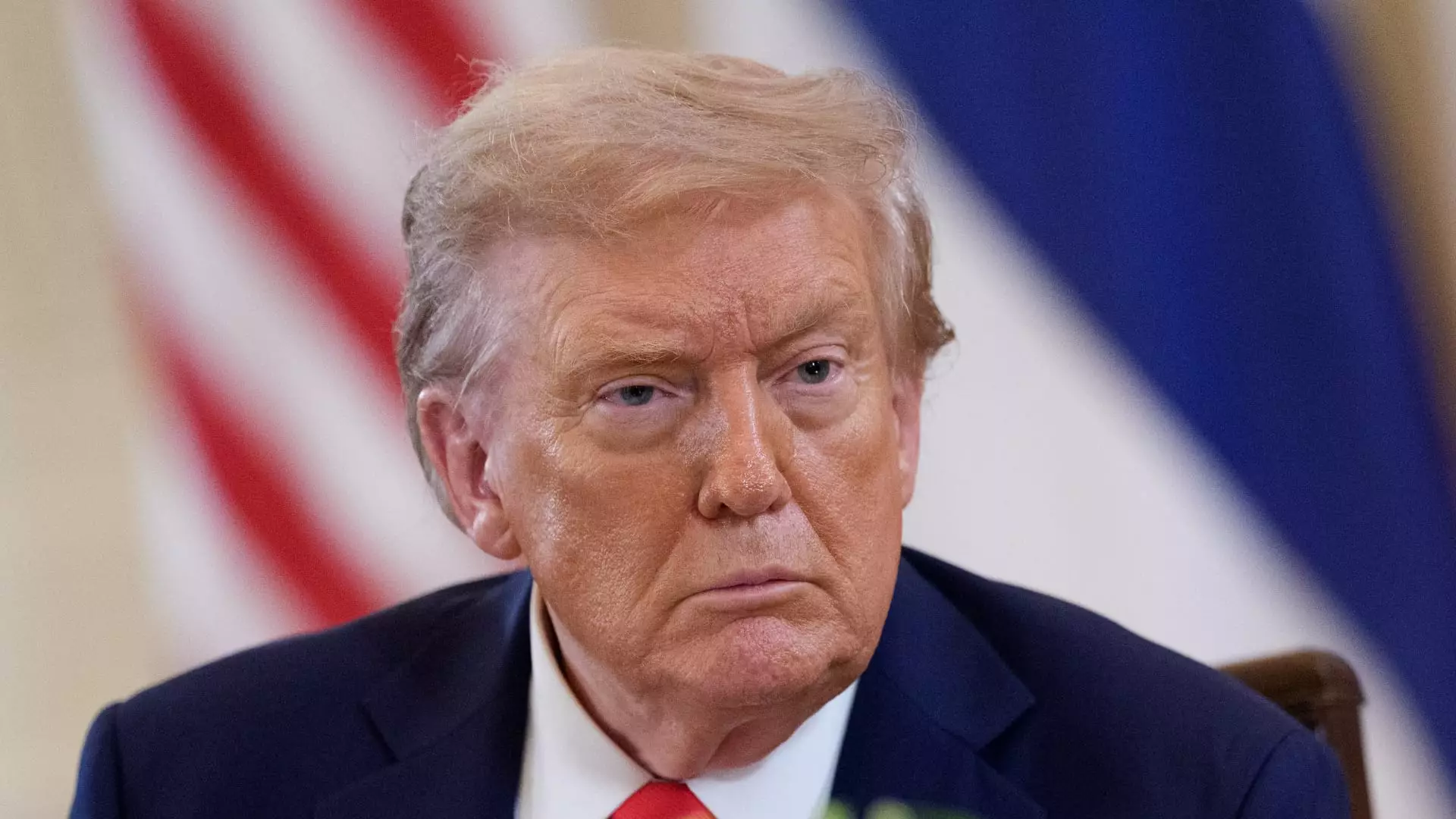In the murky world of politics, where accountability and transparency should serve as the guiding principles, Donald Trump’s recent financial disclosures cast a dark shadow over the integrity of the office. Since assuming the presidency, the billionaire mogul has engaged in an aggressive purchasing spree of bonds—investments that, at first glance, seem routine but upon closer inspection reveal a disturbing tendency of self-serving profit-seeking. The sheer volume of transactions—690 across 33 pages—suggests not just a passive investment strategy but a deliberate consolidation of financial influence that blurs the lines between public duty and private gain.
What is particularly striking is the scale and nature of these bonds, with a minimum valuation exceeding $100 million. These aren’t small-time investments but calculated moves into debt instruments issued by local governments, utility districts, and Fortune 500 giants. While the law mandates disclosure, it conveniently sidesteps the more critical question: what are the motivations behind such targeted acquisitions? Are these purely financial moves, or do they serve a more insidious purpose of shaping policies and decisions that could benefit his broader portfolio? The answer seems to lean toward the latter, raising concerns about how financial interests might compromise the president’s objectivity.
Profiting from Public Institutions—A Disconcerting Trend
The bonds in question aren’t issued by obscure entities; instead, they include essential services and infrastructure—water districts, school boards, hospitals—sectors that directly impact everyday Americans. By investing in these bonds, Trump effectively positions himself to benefit financially whenever these local entities succeed or default. It’s a stark intersection of public goods and private pockets, an arrangement that risks undermining the very foundations of public trust.
Even more troubling is the relationship between some of these companies and Trump’s own policies. For instance, purchases of bonds from giants like UnitedHealth and Home Depot could be perceived as strategic—they operate in sectors where regulatory decisions, trade policies, or healthcare reforms might influence profitability. This raises critical questions about whether the president’s financial interests could inadvertently or deliberately sway policy decisions in favor of those corporations, exposing a vulnerability in the governance framework designed to keep politics free of undue influence.
Legal Loopholes Shielding Conflicts of Interest
It’s tempting to dismiss these disclosures as legal technicalities, but that would be a gross oversimplification. Federal regulations grant presidents a generous exemption from conflict of interest laws, allowing them to maintain substantial business holdings while in office. Unlike their predecessors, Trump opted not to divest, choosing instead to retain and expand his financial empire. This decision, intertwined with his current investments, makes a mockery of the principle that public service should transcend personal financial gain.
The problem lies not only in the law but in the moral vacuum it creates. While some argue that mere ownership of bonds isn’t inherently corrupt, the scale and scope of Trump’s transactions signal a potential conflict of interest—especially when investments are made in sectors that could be affected by government policy. This environment fosters suspicion and erodes public confidence, emphasizing the importance of ethical standards that go beyond legal compliance.
Implications for Democracy and Public Trust
The broader implications of these financial maneuvers are profound. When a leader leverages their office to enhance personal wealth—even discreetly—it undermines the fundamental democratic values of fairness, transparency, and accountability. Citizens deserve to know that decisions affecting their lives are rooted in the public interest, not personal financial gain.
Furthermore, Trump’s post-presidency financial success, fueled by his political prominence, exemplifies a burgeoning trend where power and profit become inseparable. He has transformed the office into a platform not just for governance but for lucrative ventures, challenging the very notion of public service as a sacrosanct duty. This toxic blend of influence and income not only deepens public cynicism but also risks setting a dangerous precedent—one in which political power is used as a stepping stone for personal economic enrichment.
In a functioning democracy, transparency and self-imposed ethical boundaries should serve as bulwarks against corruption. Trump’s blatant disregard for these principles underscores a frightening reality: without meaningful reform, the line between governance and personal gain will continue to blur, potentially forever altering the landscape of American politics.


Leave a Reply